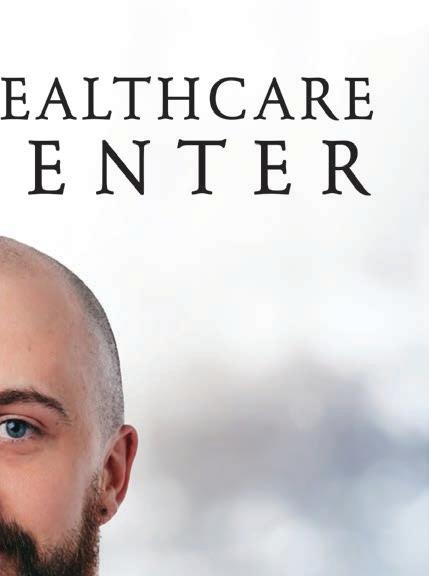































LGBTQ politicians learn how to stay safe amid rising political violence in America, PAGE 12




























































ADDRESS PO Box 60664
Washington DC 20039
PHONE
202-747-2077
news@washblade.com
INTERNET
washingtonblade.com
PUBLISHED BY Brown Naff Pitts Omnimedia, Inc.
PUBLISHER
LYNNE J. BROWN
lbrown@washblade.com ext. 8075
EDITORIAL
EDITOR
KEVIN NAFF
knaff@washblade.com ext. 8088
SR. NEWS REPORTER
LOU CHIBBARO JR. lchibbaro@washblade.com ext. 8079
WHITE HOUSE CORRESPONDENT
CHRIS KANE
ckane@washblade.com extg 8083
INTERNATIONAL NEWS EDITOR
MICHAEL K. LAVERS
mlavers@washblade.com ext. 8093
LOCAL NEWS REPORTER
JOE REBERKENNY
jreberkenny@washblade.com ext. 9463
POP CULTURE REPORTER
JOHN PAUL KING
PHOTO EDITOR
MICHAEL KEY mkey@washblade.com ext 8084
CONTRIBUTING WRITERS
DANIEL ITAI, ISAAC AMEND, TINASHE CHINGARANDE, PETER ROSENSTEIN, PATRICK FOLLIARD, TERRI SCHLICHENMEYER, JOE PHILLIPS, EVAN CAPLAN, ANKUSH KUMAR, ESTEBAN RIOSECO, SAM KISIKA, ELVIS KAWEDO, JAKE STEWART, HENRY CARNELL, DAWN ENNIS
CREATIVE DESIGN/PRODUCTION
MEAGHAN JUBA
production@azercreative.com
SALES & ADMINISTRATION
DIRECTOR OF SALES & MARKETING
STEPHEN RUTGERS
srutgers@washblade.com ext. 8077
SR. ACCT. EXECUTIVE
BRIAN PITTS
bpitts@washblade.com ext. 8089
CLASSIFIED ADVERTISING/ADMINISTRATION
PHILLIP G. ROCKSTROH
prockstroh@washblade.com ext. 8092
NATIONAL ADVERTISING
RIVENDELL MEDIA
212-242-6863; sales@rivendellmedia.com
For distribution, contact Lynne Brown at 202-747-2077,











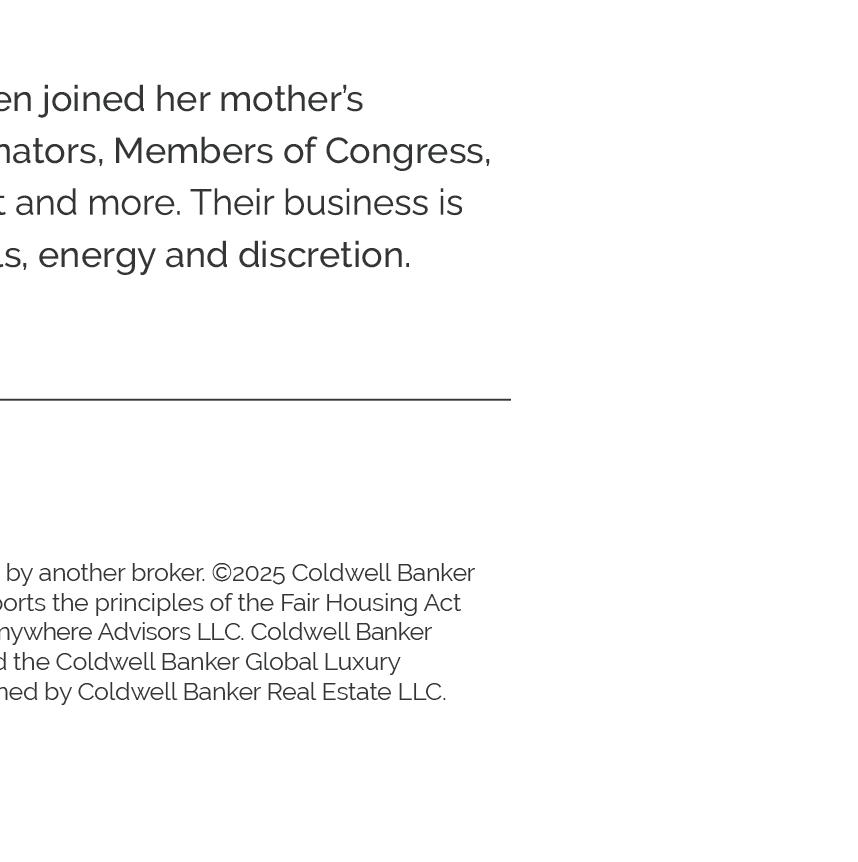
Acclaimed D.C. pediatric hospital cites ‘escalating legal risks’
By LOU CHIBBARO JR. | lchibbaro@washblade.com
D.C.’s Children’s National Hospital announced on July 18 that it will discontinue the gender-transition medical care it has been providing for juvenile patients for about 20 years beginning Aug. 30.
In a statement posted on its website, the highly acclaimed pediatric hospital stated, “In light of escalating legal and regulatory risks to Children’s National, our providers, and the families we serve, we will be discontinuing the prescription of gender-affirming medications.”

The statement adds, “Mental health and other support services for LGBT patients remain available. You are always welcome at Children’s National for your medical needs.”
It also states, “We know this change will have a signif-
By ABIGAIL HATTING
icant impact on affected patients, families and staff. Our care teams are working directly with families of current patients to support them.”
The D.C. hospital’s action is the latest in similar decisions by hospitals and medical facilities to discontinue transgender care for juvenile patients across the country following the adoption by the Trump administration of a series of anti-transgender policies and executive orders.
The U.S. Justice Department recently announced it had issued subpoenas to about 20 doctors and medical facilities that have provided gender-transition care to determine whether they were in violation of the administration’s order banning transition care for juveniles.
The Washington Blade couldn’t immediately reach a spokesperson for Children’s National Hospital to confirm whether the hospital’s end to gender-transition care was adopted in response to the Trump administration policies.
The Washington Post reported that a hospital spokeswoman, which it did not identify by name, declined to say whether Children’s National or any of its providers were among those that received one of the Justice Department’s subpoenas. The Post reports that the spokeswoman also declined to say how many patients will be affected by the decision to stop transition care.
Also on its website, Children’s National states that its longstanding Gender Development Program has not and currently does not provide gender-transition surgery for youth under the age of 18. It says the policy also calls for not providing hormone therapy for children prior to the onset of puberty.
In its article on Children’s National Hospital’s decision to
After a church group announced plans to protest a drag brunch at Goolee’s Grille in Rehoboth Beach on July 20, counter-protesters quickly mobilized to support the LGBTQ community.
The protest permit request was withdrawn the day before, according to Sussex Pride, one of the organizers of the counter-protest. The church, St. Ann’s of Bethany, posted a statement saying that the announcement of the rally was sponsored by an organization unaffiliated with the church and was “regretfully included” in the most recent bulletin.
“To be clear, while we wholeheartedly encourage the praying of the rosary, this rally is not endorsed by the Parish or Diocese,” the statement says. “As Catholic Christians, we recognize that all of us are made in the image and likeness of God and deserve to be treated with love and respect. We apologize for any divisiveness that this unfortunate situation has caused and pray that all may be united as brothers and sisters in Christ.”
Despite the cancellation, an estimated 300 counter-protesters supportive of the restaurant turned out on Sunday morning in an overwhelming show of support.
David Mariner, executive director of Sussex Pride, said he was thrilled that nobody ended up protesting the drag brunch and is grateful to all the people who came out to show support.
Several attendees said it was important to show up in big numbers to send a clear message that Rehoboth Beach is an LGBTQ-friendly town and that expressions of hate
end gender transition care, the Washington Post quotes the mother of a transgender college student who told the Post her son received gender-transition care at Children’s National beginning in 2018.
“The hospital is a vital resource, and I would never want anything to put that in jeopardy,” the mother, Mary Raibman, told the Post. But she added that if the hospital continued to offer this care, “I don’t think they would have to close. I believe they’re choosing not to stand up and fight,” the Post quoted her as saying. “This decision is really disgusting,” she told the Post.
Ben Takai, president of the board of Metro D.C. PFLAG, told the Blade that the D.C.-area PFLAG chapter and PFLAG National are providing information to parents of transgender children who may be at risk of losing access to services at Children’s National in D.C. and other facilities that no longer provide gender-transition care.
“PFLAG specifically has resources that we can connect people to that, if they don’t exactly provide those services, they can better direct these parents, these families, these youth on where they can go to access those services,” Takai said.
“But the advice I would give is to connect with organizations like PFLAG, with existing organizations that have been established for many years,” he told the Blade. “Because we know adversity. But we also know the grassroots efforts that are in place to connect people to these much needed and necessary services.”
Takai said he would welcome inquiries from those who may need information regarding gender-transition services. He can be reached at bentakai@dcpflag.org.

or intolerance will be met with stiff resistance.
The gay-owned restaurant has been hosting drag brunches for the past eight years. Owner George Stakias issued a statement on the restaurant’s website on Monday.
“Yesterday was a moment we’ll never forget,” the statement reads. “What was expected to be a day of protest became something far more powerful — a true celebration of community, love, and unity. We didn’t see signs of hate … From the bottom of my heart, thank you. After this weekend, it’s clearer than ever: it’s not just a show. It’s a symbol of what’s possible when people lead with love. We’re proud to be your neighborhood spot, and even prouder to be part of a community that lifts each other up.”
Goolee’s hosts drag brunches every third Sunday of the month. The restaurant opened in 2004 in Ocean City before moving to Rehoboth in 2014.









By JOE REBERKENNY
Last week, the D.C. Council considered removing one of the most contentious ballot initiatives in D.C. government’s history — but for now, it stays.
In a 7-5 vote, an amendment to the D.C. budget — proposed by Ward 4 Council member Janeese Lewis George — ended the repeal of Initiative 82, keeping the incrementally rising tipped wage in the District.
In November 2022, D.C. residents overwhelmingly — at 73.94% — voted for the “District of Columbia Tip Credit Elimination Act of 2021” ballot measure (a.k.a. Initiative 82), which would slowly phase out the tipped wage in the District.
This act had a goal to increase the wages of everyone working in the District, promote wage fairness, and reduce wage theft by gradually raising the tipped minimum wage over five years. From restaurant owners’ perspectives, though, the act is doing more harm than good.
In many parts of the United States, people who earn a “tipped wage” are paid less than the minimum wage — with the expectation that the tips they earn on shift will make up the difference and ideally push them above the minimum. These tipped wages vary by state (or district), but are often significantly lower than the minimum wage.
In 2021, when this act was proposed, tipped workers made $5.05 per hour plus tips, while minimum wage workers earned $15.20 an hour. The ballot initiative passed with the hope that it would uplift those working in the service industry.
Since the initiative passed, there have been small increases to the tipped minimum wage in D.C. — rising to $6 in May 2023, $8 in July 2023, and then $10 in July 2024. Another $2 increase was scheduled for this July, but on June 3, the D.C.
Council passed emergency legislation to pause the jump for 90 days.
Since the pause, there’s been pushback from both sides of the initiative picket line.
Supporters of Initiative 82 argue the measure prevents wage theft and ensures adequate income, especially as inflation and the cost of living continue to rise.
Opponents — most notably the Restaurant Association of Metropolitan Washington (RAMW) — claim the initiative will prompt “44% of full-service casual restaurants in D.C. [to] close by the end of 2025.”

At Spark Social House (2009 14th St NW), D.C.’s first nonalcoholic LGBTQ bar, the management team is rethinking not just what goes in the glass, but how staff are paid behind the bar. They opened in March of 2025, with Initiative 82 affecting how they pay their tipped staff.
“We actually started out paying minimum wage at $17.50 and then found that that was not actually sustainable,” owner Nick Tsusaki explained. “We had a group staff meeting, and decided to do $12 an hour for our hourlies, and then more for our managers on duty. We don’t have bar backs or any roles like that, so everybody just kind of makes the
same amount.”
Rather than follow the traditional tipped wage system, Spark implemented a more collective structure designed to promote equity, while still allowing for the business to financially work.
“We’re just focused on ourselves. The way that our tips work is we pool tips over a two-week pay period, and then portion those out evenly based on the number of hours that you’ve worked in that two-week window,” Tsusaki said.
One key aspect of this step toward equity in tipped roles is their standard automatic gratuity charge.
“For us, it felt like the fairest way to distribute the tips was to do the 20% autogratuity to make it more equitable,” he said. “I went from bar back to business owner within the past two years so I’ve been in each of these positions. When I was looking to open Spark, I tried to think of how we could reimagine the payment system within the confines of what is possible as a business. And that’s what we came up with to try to make things feel more equally distributed.”
But for Tsusaki, Spark is about much more than margins and payroll — it’s about building community and offering something that goes beyond the drink itself.
“What I want people to understand is that what you’re paying for is not what’s in your cup – you are not paying for the actual value of this cup of coffee. We know that you can make that at home for free, basically. You are paying your portion of the rent, the utilities, the labor costs, insurance–all of these other costs that go into creating one of the 20 plus LGBTQ spaces in the city. I understand being frustrated about prices or tipping, but it’s more about understanding the larger business.”
Just in time for National Ice Cream Day, D.C. landed the country’s first-ever Greek ice cream shop—operated by two LGBTQ community leaders.
On July 20, Yala Greek Ice Cream (3143 N St., N.W.) opened its bright blue doors at N and Wisconsin Avenue in the heart of Georgetown, marking the first time a Greek ice cream shop has opened in the U.S.
Chrys Kefalas and Salah Czapary are the duo behind the project. Kefalas, a proud Greek and vice president of brand strategy at the National Association of Manufacturers, joined forces with Czapary, a former MPD officer and D.C.’s former Nightlife and Culture Officer of Palestinian-Hungarian descent. Together, they’ve infused every scoop with the flavors of their Mediterranean roots—and their shared queer identity.
The idea for Yala traces back more than 40 years, to a Greek island where Kefalas’ family spent summers.
“My business partner and our CEO, Chrys Kefalas—he’s Greek—and when he was young, he grew up going to an ice cream shop on a [Greek] island where his family is from,” said Czapary. “His family has always been a part of the food industry.”
During the pandemic, the two friends reconnected over a shared hobby: making homemade ice cream. What started as a quarantine distraction evolved into a business plan.
“It’s always been a running joke for me that when I retire, I would open an ice cream shop,” Czapary said. “When [Chrys] had the opportunity to bring these recipes from Greece to the U.S., he came to me and said, ‘Why don’t we do it now?’ It suddenly became very real.”
After months of taste-testing Kefalas’s Papou’s (grandfather’s) recipes at home, the duo began scouting locations, sourcing ingredients, and developing a brand that honored their roots.
The name “Yala” is a blend of influences: “It’s a play off the word in Greek for milk (γάλα), but it’s also spelled in a way that one would say ‘yalla,’ which in Arabic means ‘let’s go,’” said Czapary. “It’s a play off of our shared heritages.”
So what is Greek ice cream, exactly? Czapary says it’s somewhere between gelato and traditional American styles. “Gelato is too heavy. American ice cream is too sweet. This is just perfect,” he recalled an Italian chef saying after trying it.
Yala will offer 16 rotating flavors, combining local ingredients with imports from across the Mediterranean. Mix-ins like pistachios are sourced from EU countries, while milk comes from Maryland “A2” cows, which some say is easier to digest.
“There’s going to be classic hits like mint chocolate chip, vanilla, and chocolate,” he said. “But there’s also going to be flavors that we’re bringing from Greece—like Greek yogurt with tart cherry, and another with orange preserves.”
When asked for a favorite, Czapary was quick to answer: “I am a pistachio guy. I told Chrys, ‘I’m only going to do this if we can make the best pistachio.’ And I think it is the best.”
His close second? “Mornings with Thea,” a Greek yogurt flavor with orange preserve. “It’s not a flavor people gravitate to right away, but I think when people try it, they’re going to love it.”
But Yala is about more than just dessert.
“What we’re really hoping to bring—beyond just a really great product—is the feeling you get when you go to an ice cream shop in Greece,” Czapary said. “A homey feel of a family-owned place that really welcomes everyone.”

The values behind the shop—Φιλοξενία (Philoxenia, or welcoming all), Αγάπη (Love), and Κοινωνία (Community)—are painted across its walls. Czapary said these stem not only from their Mediterranean roots but also their identities as LGBTQ men.
“A lot of our team wears a shirt that says, ‘all flavors welcome,’” he said. “It’s a nod at how we feel: this is a space where everyone can come and enjoy great ice cream. But it’s also a tribute to Chrys’s grandfather— who was known to be someone who welcomed everyone, who enjoyed being a host, and providing the best product to people. We want that space to reflect that.”
JOE REBERKENNY
Find the perfect floor plan to fit your style and budget at an Erickson Senior Living®-managed community near you!
• Enjoy contemporary fixtures and finishes.
• Choose from a range of custom upgrades.
• Retire from the hassle of house repairs.
Call 1-888-755-7809 or visit DMVSeniorLiving.com for your free brochure.
ASHBY PONDS, Ashburn VA GREENSPRING, Springfield VA RIDERWOOD, Silver Spring MD
JULY 31–AUGUST 24

Tituss Burgess In Concert
THURSDAY, AUGUST 7, 8 PM
AMERICAN PREMIERE
To Wong Foo: The Musical In Concert
THURSDAY, AUGUST 21, 8 PM
Just Arts: From Stonewall to RuPaul Drag Extravaganza Featuring Latrice Royale and LaLa Ri AUGUST 24, 8 PM







Two open seats to be filled in Aug. 9 election
By ABIGAIL HATTING
The Rehoboth Beach Board of Commissioners election is coming up in a few weeks on Aug. 9, where three first-time candidates are vying for two open seats: Susan Stewart, Chris Galanty, and Jeffrey Goode.
The board is the governing body of the city, responsible for creating the budget, appointing city officials and enacting ordinances. Seven commissioners, including the mayor, serve at a time for three-year terms, with no term limits. Two current commissioners, Edward Chrzanowski, who’s gay, and Francis “Bunky” Markert Jr. are not seeking re-election.
The Washington Blade spoke with each of the candidates about their platform and vision.
Meet Susan Stewart
Susan Stewart is a lawyer, financial adviser and full-time Rehoboth resident. She is the senior vice president of The Stewart Group, RBC Wealth Management and serves on the Rehoboth Beach Planning Commission as well as the Mixed-Use and Stormwater Utility Task Forces.
Stewart said her overarching vision for the future of Rehoboth is to have a community defined by cooperation and pursuit of common goals to make the city the most beautiful, well functioning, productive and responsive to citizens that it can be.
“This campaign is about restoring trust and building a stronger, more united Rehoboth Beach,” Stewart’s campaign website reads. “I am running because I want to be part of a team that governs better by listening more, arguing less, and focusing on what truly matters.”
Her main platform issues are related to city code reform, responsible commercial development, legislative approach, city finances, and oversight of consultants and legal services.
Stewart said she thinks that some of the conflict that has defined federal discourse and polarization has hit the small town.
“That is a real obstacle to getting things done and I’d like us to all be part of this solution,” she said. “I hope Rehoboth Beach will be a well-run community with a very efficient government that … has completely shed this image of being a place where it’s really hard to get anything done.”
Stewart referenced the current lawsuit facing the city of Rehoboth regarding the hiring of City Manager Taylour Tedder. Some residents claim that Tedder’s employment contract violated the city charter. She supports the city in defense of the lawsuit because it will be very costly if it loses, and believes that commissioners should want the city to not be harmed financially.
A central issue is how to balance the needs of businesses and residents, according to Stewart.
“I think we all benefit from having a thriving Rehoboth, and that’s defined by people having good quality of life. Visitors having good experiences [and] businesses being able to thrive.”
Stewart describes herself as a creative prob-
lem solver and considers her background as a lawyer and financial adviser as a big differentiator to the other two candidates. She also had an athletic career on the U.S. Women’s Lacrosse Team and coached collegiate basketball and lacrosse.
“Sports really taught me resiliency,” Stewart said. “Getting up after you got knocked down, being able to fight hard for what you want, but not allowing it to devolve into personal attacks … I think that’s a huge, huge skill set to bring to this position, and getting good professional board members is critical.”
Stewart identifies as a member of the LGBTQ community and said that people who live in Rehoboth and people who own businesses there know that the city thrives in large part because of the influence of the gay community.
Stewart’s goal is to be the agent for bringing together businesses and residents “to create the best Rehoboth we can.”
Chris Galanty came to Rehoboth for the first time in 1995 and has always been drawn to beach communities, like the one where he grew up in New York. After visiting every summer and being part of the gay beach house community, he fell in love with Rehoboth and bought a home in 2018, while still living in D.C. part-time.
Galanty works in the environmental sector and has volunteered for multiple organizations. He has worked for Habitat for Humanity and Save Our Rivers, and has served on the Bloomingdale Civic Association in D.C. and the Rehoboth Beach Streets and Transportation Committee.
If elected, Galanty would be the youngest commissioner on the board. His main priorities are excellence in city operations, fiscal responsibility, restoring Deauville Beach to Rehoboth, public safety and quality of life, environmental protection and resilience, and support for local businesses and tourism.
“I’m very invested in Rehoboth. This is our home. This is where we’re going to be living really for the rest of our lives,” Galanty said.
As part of the campaign process, Galanty said he has met with all major department heads, from the city manager to the chief of police to the head of the wastewater department. His focus is on transparency, communication, and accountability.
“There are a lot of things that are going well here,” Galanty said. “This is a well-run city government, but there are areas for improvement.”
Part of Galanty’s drive to run was to ensure that Rehoboth continues to be a safe place for the gay community for generations to come, as he has been an out gay man for more than 30 years.
“I think representation is incredibly important, and making sure that there are members of the LGBTQIA community represented in city government is important,” Galanty said.
A lot of people want to maintain the small
town feel, according to Galanty. They don’t want skyscrapers, they don’t want to become Ocean City. They want [Rehoboth to be ] walkable, safe, pedestrian-friendly, and environmentally friendly.
“One of the things that people like about Rehoboth is that they can walk everywhere, and I’m really a big advocate of transportation safety and bicycle and pedestrian access,” Galanty said.
Balancing the economy and tourism with maintaining a good quality of life for residents is a tricky issue and is talked about on the campaign trail, said Galanty.
Galanty manages his household and business by ensuring that spending and revenue align. You don’t want to spend more than you’re making, and what is spent should reflect the values of the community, he said.
“I’m very mindful of the financial responsibility and management issues that are being discussed,” he said.
If elected, Galanty would like to see a more vibrant downtown business district by the end of his term. He believes his unique set of experiences as an urban planner, community advocate, and environmentalist set him apart from the other candidates.
“My hope is that Rehoboth Beach retains its unique character and charm, but also evolves to be more responsive, more transparent and more results oriented.”
Jeffrey Goode has been in Rehoboth fulltime for about eight years but has had a second home there for much longer. With an economist background, he has worked as a research manager for about 40 years, mostly with the federal government in D.C. He has also taught classes part-time at colleges such as American University, Georgetown University, and the Catholic University of America.
Goode is now mostly retired from the government and has time to run for office. He said he decided to run for “fiscal sanity and competence.” His number one priority is getting control of spending.
He said since moving here eight years ago, the budget has doubled and is now around $44 million. Goode is worried the city will hit its borrowing limit of $75 million in the coming years. If elected, he would not vote for any budget that exceeds the rate of inflation.
His top five priorities are: fiscal sanity, rescinding the stormwater impact fee, getting back control of Deauville Beach, vigilance in protecting the beach, and concentrating on everyday infrastructure improvements instead of large projects.
Goode said that Rehoboth is “basically overcrowded now,” and the way to control it is to use economics to be able to service all of the people who visit, such as parking fees. The number of tourists needs to be correlated with the infrastructure but for several months of the year, the city is overflowing, which reduces the experience, according to Goode.

Goode also said that the gay community in Rehoboth is an extremely integral and important part of the city.
Goode’s wife, Suzanne Goode, is a current commissioner. There are no rules against spouses serving together, as outlined in Section 3 of the city charter. The city’s election administrator and city solicitor reviewed the charter and found that it does not address spouses serving simultaneously, according to the City of Rehoboth Beach’s communications manager. Some have criticized Suzanne Goode’s social media posts as too conservative for the progressive town, including posts related to immigration and climate change.
Goode said he has seen mixed reactions to his run for a commissioner seat. He wants to reassure residents that he is trying to balance things out, rather than grab power.
“There’s no rules saying a family member can’t run. They’re not appointing you. You have to go get elected. You have to get elected by the people as a whole,” Goode said. “I don’t see any conflicts of interest. I don’t see any problem.”
Suzanne Goode has expressed frustration over the other commissioners not being transparent with her about updates to the lawsuit against the city. Following a tense meeting on July 7 where she asked about it and was shut down, a new workplace civility rule was implemented mandating “mannerly and courteous behavior” among city employees and commissioners.
Jeffrey Goode claims that the Board of Commissioners operates like a political machine that helps to select and support candidates, including his two opponents in this election. Galanty and Stewart both disputed this claim. Galanty said he is an independent candidate running on his own volition, and made this decision after a significant amount of consultation with his husband and family. Stewart said that this characterization of a political machine is a reflection of the citizenry and the voters not wanting to see spouses on the commission.
If elected, Goode hopes to save taxpayers money and make the city fiscally sound.
“I would hope that [in] our city, everyone could be proud of it. I hope it’s a safe, welcoming, wonderful resort to go to. I hope our fiscal situation is strong.”
Voting is open on Aug. 9 from 10 a.m.-6 p.m. at the convention center. Property owners can vote, even if they don’t live in Rehoboth fulltime, but must register to vote at least 30 days prior to the election.









By CHRISTOPHER KANE | ckane@washblade.com
A study published in January 2024 by the Brennan Center for Justice found that America is experiencing a surge in political violence not seen since the assassinations of the 1960s, noting the insurrection at the U.S. Capitol, the attempted murder of Speaker Emerita Nancy Pelosi’s (D-Calif.) husband by a hammer wielding assailant, the shooting of Republican U.S. Rep. Steve Scalise and Republican colleagues at the annual Congressional Baseball Game, and threats against members who opposed U.S. Rep. Jim Jordan’s (R-Ohio) bid for House speaker.
Since the report was issued, there were other high-profile incidents including two attempts on President Donald Trump’s life, an arson fire set with molotov cocktails at the home of Pennsylvania Gov. Josh Shapiro (D), and the murder and attempted murder of Democratic lawmakers in Minnesota by a suspect who allegedly kept lists of dozens of other elected officials and public figures.
While the spike in violence and intimidation has been felt across the board, the Brennan Center stressed that “surveys and interviews revealed important variations among officeholders’ experiences,” with “Abuse directed at women, people of color, religious minorities, and LGBTQ+ individuals in office often convey[ing] misogynistic, racist, religious, or homophobic hate.”
According to a growing body of reports from civil rights groups and law enforcement agencies, anti-LGBTQ rhetoric and legislation, particularly aimed at trans and nonbinary people, has emboldened extremist activity and heightened the risks for those serving in public life or running for office. The trends map onto the broader population-wide increases in hate violence and intimidation based on sexual orientation or gender identity.
At the same time, advocates say LGBTQ representation in public life is especially important as the community’s rights and freedoms are under assault.
For an insider’s view into the considerations at play for candidates and officeholders, earlier this month the Washington Blade spoke with Evan Low, president and CEO of the The LGBTQ+ Victory Fund and the LGBTQ+ Victory Institute. The organizations, respectively, work to recruit, endorse, and financially support LGBTQ candidates while providing them with leadership development, training, research, and convenings.
A former elected official who served in the California State Assembly from 2014 to 2024 and was previously the youngest openly gay Asian-American mayor in U.S. history, Low noted that “we have seen a significant increase” in threats and violence targeting LGBTQ candidates.
While concrete data is limited, Low said the organization has collected anecdotal reports from many of its more than 500 endorsed candidates, detailing everything from homophobic slurs to vandalized signs and direct threats. “Oftentimes, we’ll see lawn signs that say, ‘No homos in our community.’ That happens every single cycle.”
More recently, however, “I’d say, over the past five years, certainly,” Low said, “we’ve seen more of that rhetoric.” From “the conversations that we’ve had with our elected officials,” he said, the upticks are happening in
places where “we’ve seen the increase in laws passed in state houses that really target our community, therefore giving justification to see the increase in the type of [anti-LGBTQ] rhetoric that we see.”
To address these risks, Victory Fund offers candidates strategic guidance and peer support. Low emphasized the importance of helping candidates remain authentic while taking the necessary precautions to stay safe. “We provide advice on how to deal with being authentic in your true lived experience as an openly gay person, while also understanding the safety risks that exist.”
To help the principals deal with these challenges, the organization is also piloting mental health and counseling services. “Sadly, this is the state of affairs,” Low said. “But we’re working to support elected officials, particularly in very hostile communities or states.”
One key element is connecting candidates with mentors — sitting officials who have weathered hate, intimidation, and in some cases violence. “We pair candidates up with other elected officials who have gone through these experiences,” Low said. “That way they have someone who can be a sounding board and share how they dealt with it.”
Victory Fund also urges candidates to report any threats. “Campaigning can be lonely and isolating,” Low said. “We want them to know they’re not alone.”
The threats differ depending on the level of office. Local candidates, Low said, because they often focus on basic civic issues like clean water and road maintenance, generally attract less hate and more grace from the communities they serve, while scrutiny is far more intense at the federal level where “you may face opposition research, threats, and high visibility.”
Low explained that Victory Fund’s training programs emphasize practical tactics and safety planning for candidates regardless of which office they are after. Candidates are urged to establish communication with local law enforcement, make their presence known to relevant agencies, and assess the risks unique to their districts. “We ask: Has there been violence in your area? Are there usual suspects that are hostile to our community? What kind of response can you expect from your local law enforcement?”
These conversations often begin even before someone decides to run, which is deliberate. Victory Fund’s four-day training programs are comprehensive, designed to help prospective candidates weigh not just the professional demands of a campaign, but also the toll on their personal lives. “We hope some participants realize this just isn’t for them — that they can support in other ways.”
Low noted that many LGBTQ+ individuals are drawn to service but may be introverted or have caregiving responsibilities that complicate a run for office. Others may be unsure about exposing their families to the risks that come with visibility. The decision of whether to feature photos of same-sex spouses and children in campaign materials, for instance, can be a balance between authentically representing oneself and mitigating legitimate fears about doxxing or harassment.
He recounted situations in which information about children of LGBTQ candidates was disseminated by far-

right actors, even cases where kids were outed online or targeted with slurs. “I want to show that I’m just like any member of the community,” Low said. “But I also want to protect my kids. I’m fair game, but they are not.”
In some cases, Victory Fund has helped candidates erase personal information from the dark web, offering tools and technical assistance to minimize the threat of harassment. Yet, Low was careful to note that political violence can strike anywhere. “Look at Harvey Milk,” Low said. “He was assassinated in a liberal city, in a secured building.”
Low himself required a security detail during his time in the California Legislature. “At Pride parades and public events, I was joined by uniformed officers,” he said. “Even in a progressive state like California, the threats are real.”
That personal experience informs his approach as the head of Victory. “We want to lower the temperature — not just for LGBTQ+ officials but for everyone,” Low said, adding that doing so is vital to preserving democratic norms.
Despite the challenges, Low said interest in running for office has spiked, particularly among transgender individuals. The Victory Institute recently received more than 55 applications for a training cohort specifically for trans candidates, and will launch its first session in Los Angeles this September in partnership with Advocates 4 Trans Equality. Danica Roem, the first openly trans state senator in Virginia and a Victory alum, will be among the trainers.
“You’d think in this hostile environment, people would keep their heads down,” Low said. “Quite the contrary. The uptick is such that members of our community refuse to be erased. They are stepping up.”
He pointed to leaders like U.S. Rep. Sarah McBride, a former Victory intern, and Olivia Hill, the first and only trans person elected in Tennessee, as evidence of what’s possible. “Our mission is to build power for the LGBTQ+ community. We are laser focused on that.”
Many of the group’s most promising candidates are in states where anti-LGBTQ laws are on the books. “They are not just surviving,” Low said. “They are thriving.” Victory’s long-term strategy is focused not just on the next election but on building a pipeline of LGBTQ leaders for the next 10 to 20 years. “We are about the long game,” Low said. “It’s two steps forward, one step back.”
He hopes the stories of LGBTQ officials running and winning in hostile environments will inspire others to get involved, whether as candidates, donors, appointees, or behind-the-scenes organizers. “We need everyone. And we need them now.”
The goal, Low said, is “To help LGBTQ people seize the highest thrones of power” and “change hearts and minds by showing up and leading.”


represents the entire LGBTQ+ community, including clinicians, researchers, service providers, and advocates who serve individuals of every sexual orientation, gender, gender identity, race, ethnicity, and age, regardless of disability, income, education, and geography. The Coalition works to improve LGBTQ health and well-being through advocacy, medical and consumer education, communications, capacity building, and health services research. Learn more at healthlgbtq.org.
Pride is all about celebrating who we are as an LGBTQ+ community. As people. And part of that celebration is making sure we’re taking care of ourselves and looking out for one another. While Pride month may be over, the spirit (and summer) continues.
That’s why this is still an ideal time to talk about health. With so many people still coming together for events and festivities, it’s the perfect opportunity to bring health into the conversation— particularly how essential open communication is when it comes to addressing the current mpox situation.
But communication is a two-way street. Like community, providers need to address health issues like mpox with compassion, competence, and confidence. That means without moralizing, without stigma, and with the trust it takes for people to feel safe and supported when they go back to talk to their partners and friends. The community deserves knowledge and care that reflect our lives.
Mpox, formerly known as monkeypox, is a contagious virus that spreads through close contact, including sex. Though mpox is not a sexually transmitted infection, the patterns are clear: When bodies collide, especially in ways that involve skin-to-skin exposure, transmission can happen. Many people report their first symptoms showing up at sites of sexual contact.
previously circulated. In response, the Africa Centres for Disease Control and Prevention has declared a “public health emergency of continental security.” When diseases like this spread unchecked, the consequences don’t stay confined. What happens globally still affects us locally.

Mpox cases have primarily been seen among sexual and social networks of gay, bisexual, and same-gender-loving men, as well as transgender and nonbinary individuals—especially those with uncontrolled HIV. It has also affected caregivers and women. Because early framing of the virus relied on language and imagery that fueled stigma — particularly toward African nations and then onto LGBTQ+ people — the name change to ‘mpox’ was a deliberate step to correct any unnecessary associations. This is a public health issue that transcends identities and borders, and it deserves a response grounded in science and dignity.
Globally, the concern is growing. In the Democratic Republic of the Congo (DRC), Clade I mpox—historically more severe—has caused more than 48,000 suspected cases and more than 1,100 deaths in 2024, many among children and immunocompromised individuals. A more transmissible subvariant, Clade Ib, has been identified and is now spreading to neighboring countries like Burundi, Kenya, Rwanda, and Uganda, where mpox had not
While mpox may not be in the headlines as often as it used to be, it hasn’t gone away. In the United States (U.S.), the Centers for Disease Control (CDC) has confirmed four recent cases of Clade I mpox in individuals with travel history to Africa between late 2024 and early 2025 detected in California, Georgia, New Hampshire, and New York. At this point, there is no evidence of further spread from those cases, and Clade II remains the primary strain circulating in the U.S. However, vaccine uptake is still lagging. Most mpox infections continue to occur among people who are either unvaccinated or only partially vaccinated. For optimal protection, the CDC recommends that those at risk receive two doses of the vaccine to help protect themselves and others from mpox in the midst of a current outbreak. However, just 15 percent of those recommended to get the mpox vaccine have received both doses— leaving significant gaps in protection heading into the summer months.
Vaccination remains one of the most effective tools we have. It not only helps protect against infection, but it can also help reduce symptoms if someone does get sick. The mpox vaccine is highly effective, but it’s a two-part series, and that second dose really matters. Ideally, it’s given at least 28 days after the first—but even if more time has passed, you can always go back at any time.
There are other ways we can all unite this summer during Pride by looking out for ourselves and each other. If you or a partner has a new or unexplained rash or just aren’t feeling right, it’s OK to pause and chat with your doctor. Pay attention to symptoms like painful sores, flu-like symptoms, or discomfort when going to the bathroom. Have open conversations with your partners. If something feels off, don’t wait — reach out to a provider you trust.
So, keep celebrating while staying informed. How we talk and listen to each other, without judgment, is still one of the most powerful ways to protect our health. Happy Pride season all year ‘round!

PETER ROSENSTEIN
is a longtime LGBTQ rights and Democratic Party activist. He writes regularly for the Blade.
For so many reasons Chris Galanty and Susan Stewart are what Rehoboth Beach needs on its Commission. They represent the best in Rehoboth. In contrast, electing Jeffrey Goode would represent the worst. Rehoboth should not have a married couple on its seven-member commission. The one member of the couple there now appears to represent MAGA Republicans. Ms. Goode’s Facebook page includes attacks on Obamacare, President Joe Biden, and Hillary Clinton — and support for Ron DeSantis. I agree with the person who said, “In this case, two Goodes would equal a bad.”
Chris Galanty’s priorities include ensuring excellence in city operations. He will insist on efficiency, transparency, and a collaborative mindset. He believes departments must be aligned, with strategic goals, supportive teamwork, and accountability. Galanty wants to enhance communications with residents by encouraging public participation through listening sessions, surveys, and systems that allow residents to track resolution of their problems. He wants to modernize the city code to reflect current priorities. He believes every tax dollar must reflect the long-term priorities of the community. He understands Rehoboth’s natural beauty is a unique asset, and must be protected. He will lead on sustainability and climate adaptation to safeguard the beaches, trees, and ecosystems. Galanty understands Rehoboth’s economy depends on a vibrant downtown and boardwalk, thriving small businesses, and year-round tourism. He is committed to leading efforts to support growth, while always protecting quality of life. This includes fighting to keep Clear Space Theatre where it belongs, in Rehoboth Beach.
Galanty has more than 30 years of experience managing large programs and budgets. He has been coming to Rehoboth for more than 30 years and in 2018 he and his husband bought their home in town. He has a bachelor’s degree in Political Science & Environmental Studies from St. Lawrence University; his master’s in Urban Planning, from the University of Virginia; and an Executive Management Certification from Georgetown University. He is a senior account and program manager with Booz Allen Hamilton. He is on the Streets and Transportation Committee in Rehoboth Beach; coordinated efforts for Munson Street to get traffic calming relief including street painting, signage, and digital speed readers. He has been a member of Casey Tree Foundation, Habitat for Humanity, and Save our Rivers, partnering on volunteer days, and supporting community-based issues.
Susan Stewart is running to restore trust in the Commission and build a stronger, more united Rehoboth Beach. She will be part of a team that governs better by listening more, arguing less, and focusing on what truly matters. Stewart believes Rehoboth Beach is a vibrant community of neighbors, families, and small Businesses. It will be more successful if they come together to solve problems. She believes she can help to do that. Stewart brings a creative, analytical mindset, and a career dedicated to guiding people, organizations, and teams through complex decisions. Her strong back-
ground in finance, law, and civic engagement, understanding how to evaluate budgets, weigh competing priorities, and asking the tough questions, will lead to better outcomes for Rehoboth.
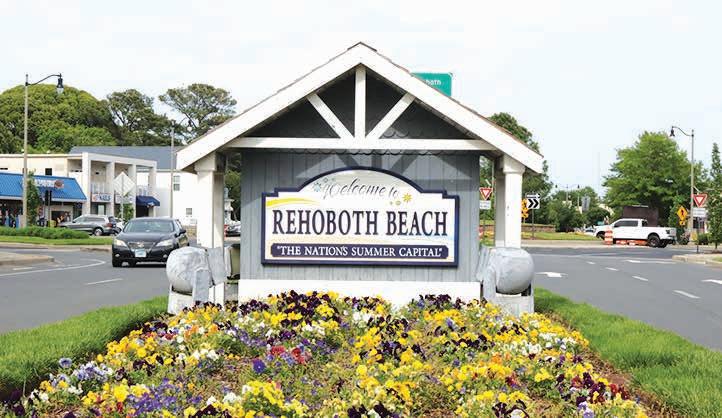
Stewart wants to help rewrite the city’s building and zoning codes, so developers, residents, and businesses, don’t constantly face delays, confusion, and frustration, caused by the inconsistent application, interpretation, and enforcement of currently outdated building and zoning codes. She believes the ocean, beach, and boardwalk, are priceless assets and surrounding structures should not detract from them. She will work to create a legislative agenda that addresses compelling matters of public interest, and design laws that minimize intrusion on individual rights. She believes the city’s financial statements must always accurately reflect its fiscal position, which she believes is currently sound. Stewart began her career as an attorney, then transitioned into the financial services sector. Her early experience included roles at major banks and brokerage firms, where she developed deep expertise in investment strategy, and client advising. In 1996, she founded her own financial advisory firm where she advised high net worth individuals and families, managing large-cap equity mandates for several state retirement systems, and a Fortune 500 company. After successfully leading the firm for 15 years, she closed it in 2011 and returned to the brokerage industry. Today, she is a financial adviser, and senior vice president with The StewartGroup, RBC Wealth Management. Her daughter, Taylor Stewart, is a business partner in their practice. Stewart works remotely from her home in Rehoboth Beach. She holds a bachelor’s degree from Ursinus College; and a Juris Doctor from The Dickinson School of Law, Pennsylvania State University. She is deeply committed to public service, and currently serves on the City of Rehoboth Beach Planning Commission, as well as the Mixed-Use and Stormwater Utility Task Forces. She is also a member of the board of trustees for Ursinus College.
I urge your vote for Galanty and Stewart for a better Rehoboth Beach.



If you loved HBO’s iconic series, “Girls,” you will absolutely adore writer/director Lena Dunham’s new romantic comedy, “Too Much.”
In the Netflix series, the lead character, Jessica — brilliantly played by bisexual comedian Megan Stalter — leaves New York to take a job in London, after a heartbreaking breakup.
She stumbles onto an indie musician named Felix, charmingly portrayed in the series by actor/musician Will Sharpe (who you may remember from “The White Lotus”). The character is loosely based on Dunham’s own journey meeting her husband, British musician Luis Felber.
Dunham, who is also co-executive producing with Felber, has a small acting role portraying Jessica’s sister, with fellow former “Girls” star Andrew Rannells playing her estranged husband.
“I think creating Jessica just felt like creating an angel with the person that I’ve been a fan of the most,” said Stalter at a recent press event. “And I felt like me and Lena both put different parts of ourselves into Jessica, and then she just became a whole different person.”
Stalter, who was equally fantastic in “Hacks,” as Kayla, is thrilled to be the main star of a series.
“I think that it feels like a different kind of responsibility and something I feel like it’s a new experience, but Lena has made it feel so safe and comfortable. I can’t imagine doing this a different way.”
Throughout the episodes, Dunham was able to delicately navigate how Jessica deals with complex subjects like anxiety and sadness in a humorous way.
“It’s a very anxiety-filled world we live in,” Dunham acknowledged. “I mean, I remember when I was a kid being diagnosed with anxiety and thinking that it was incredibly, in some way, shameful or odd. And then it’s interesting to grow up and realize that basically everyone has anxiety.”
She continued: “It’s not like having a very specific illness that is rare and hard to understand….And so, showing what some of those pressures were for these two people and also, the idea that there

Netflix series loosely based on real-life heartbreak, romance
By SUSAN HORNIK


are certain pressures that Jessica has coming from a matriarchal family.”
Dunham explores Felix’s feelings as well with incredible nuance and depth.
“There’s certain pressures that Felix feels coming from a patriarchal society, and that those binaries make it hard for everyone. They make everyone feel crowded inside their framework. And I felt really lucky both to have Luis’s perspective on the male character too, and then to have both of these two reflecting. We had really interesting conversations that really reminded me what I was doing and why I was doing it.”
The series has a number of LGBTQ guest stars — Stephen Fry (playing Felix’s dad), Rannells and Andrew Scott, with whom Stalter has a few hilarious romance-related scenes.
“I keep saying I just love being around Andrew Scott,” Stalter quipped. He makes me laugh so much. I just really, really feel high when I’m around him…He was sad to leave. But I was devastated. I was literally thinking, ‘How could I see him before work every day?!’ Like going over coffee or maybe a night tea every night together…I liked the routine of seeing him every day.”
As it turns out, Scott is the reason Stalter was hired for the role.
“When we were working on ‘Catherine Called Birdy’ and it was high pandemic, everyone was getting so much joy from Meg’s [social media] videos and I was not yet on to ‘Hacks.’ Now I’ve obviously devoured every moment of it. And the star Kayla’s journey,” Dunham enthused.
“Andrew said, ‘have you watched Megan Stalter’s videos? I feel like there’s something that you two have that feels connected.’ And so I started watching that night.”
While Stalter is happily partnered with her girlfriend off-screen, Jessica is open about her sexuality. Look out for a hilarious scene where one of her queer co-workers, Boss (Leo Reich) asks her, “How queer are you?”
She responds, “Oh! Um, no, not really gay. I mean, I love gay people and everything. Maybe one day I will be.”








The Atlas INTERSECTIONS Fe powerful multidisciplinar y per infor m, inspire, educa te, an
TheAtlasINTERSECTIONSFestivalshowcases powerfulmultidisciplinaryperformancesthat inform,inspire,educate,andentertain. APPLICATIONSOPENUNTILAUG15,2025 PERFORMANCEDATES:FEB16-MAR15,2026
































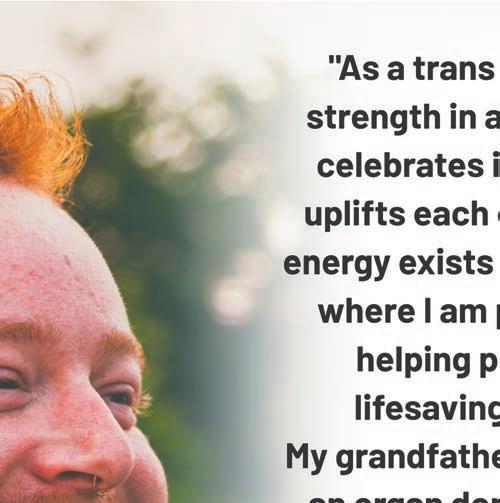


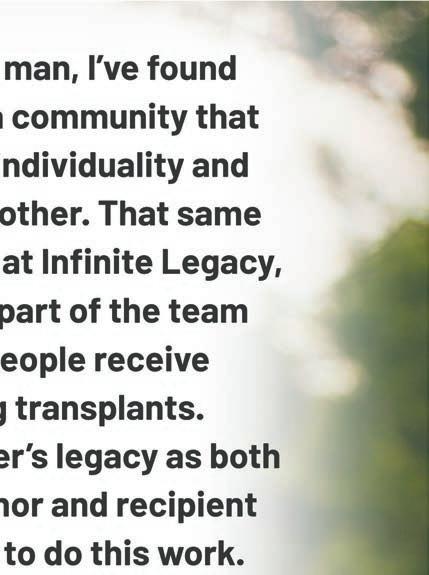

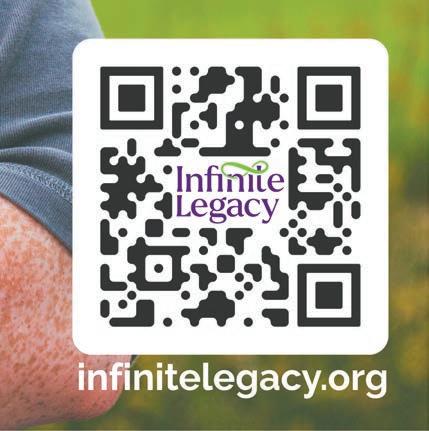




‘Eddington’ COVID-era film will challenge your thinking, disrupt your comfort
By JOHN PAUL KING
As the recent conservative blowback over “Superman” has clearly illustrated, many American moviegoers like to complain that movies have become too political.
The arguments vary; some claim that an overemphasis on social issues has made going to the movies feel like attending a lecture, or that cultural agendas have infiltrated a popular art form that is “supposed” to provide escapist entertainment. Others see it as a deliberate effort to “brainwash” audiences into acceptance of certain political ideals, depending on which side of the fence they may be on.
If you can relate, we understand your feelings, and we sympathize – but, and we hate to break this to you, every movie is inherently political.
For a film to avoid politics is, in itself, a political choice; no matter the intention of the people behind it, every film that is now or ever has been made will always have a political aspect, and to deny that it is there is to be ignorant of the very power that makes cinema perhaps the most influential art form ever created for mainstream consumption – though it’s fair to say that some movies wield it with a more scrupulous sense of neutrality than others.

Such a movie is Ari Aster’s new neo-Western “Eddington,” which opened in wide release on July 18 after a (mostly) critically acclaimed debut at Cannes in May. Top-heavy with an A-list cast of principals and seemingly timed by fate to emerge in the midst of our nation’s most critical test of sanity to date, it’s the kind of microcosmic allegory that translates sweeping and near-abstract principles of political partisanship into the interpersonal dynamics of its characters, while also taking pains to invest us in their intimate concerns – something that always, inevitably, drives our actions around any given issue that affects us personally.
Set in the early days of the COVID pandemic, it centers on Joe Cross (Joaquin Phoenix), the sheriff of the small (and fictional) New Mexico town of its title. An old-school lawman who sees himself as a protector of decency and freedom, he finds himself at odds with the new mask mandate from the town’s progressive mayor, Ted Garcia (Pedro Pascal) – perhaps more aggressively so due to the latter’s alleged former history with his own wife, Lou (Emma Stone), a “mentally unstable” victim of trauma sparked by sexual abuse as a teen. Leveraging his popularity with the townspeople, he decides to run against Garcia in the town’s upcoming mayoral election; but what begins as a straight-
forward competition centered around “common sense” arguments about public safety versus freedom of choice soon turns to wider conflict when national protest over the death of George Floyd spreads into the streets of Eddington.
Chafed by accusations of racism within his own police force – despite the inclusion of Black officer Michael Cole (Micheal Ward), whose father was Cross’s own predecessor as sheriff – and suspicious of Garcia’s involvement with a shadowy corporate backer whose effort to build a mysterious AI-training plant in the town has become a divisive issue among the town’s citizens, the sheriff tries to diffuse the tension with a level-headed “business as usual” approach which prioritizes the public peace over the ethical concerns of the town’s newly-”woke” youth population; meanwhile, his marriage is starting to unravel as Lou – coaxed by a youthful online guru (Austin Butler) and in defiance of her conspiracy-theorist mother (Diedre O’Connell) – becomes more determined to break free from the accepted story of her past, throwing his personal rivalry with Garcia into an uncomfortably uncertain new light. Faced with the prospect of a humiliating loss and the disintegration of his “happy” home, he decides to take a more aggressive approach to his campaign, sparking a chain of shocking and violent developments that rapidly turn both his town and his life into a powderkeg, as his efforts to avoid its consequences become ever more desperate and irrational.
With a stellar cast of better-and-lesser-known talents performing at their best, and the picturesque New Mexico location lending a distinctly surreal air of grandeur, it’s a deliberate thrill ride of a movie, grounded in the contrast between everyday banality and the raging turmoil of inner life; it hinges on false narratives, whether taught us by others or conjured by ourselves, and the dangers, both personal and public, of embracing them; and though it sometimes feels over-long and occasionally relies on contrivances that feel too convenient to be believed, its writer/director crafts it with enough clarity of vision – not to mention self-assurance – to make it all work.
Aster – whose two breakthrough films (“Hereditary” and “Midsommar”) turned him into one of Hollywood’s “young directors to watch” toward the end of the last decade – rose to A-lister prominence as a maker of “elevated” horror, and while “Eddington” furthers the departure that began with his last movie (the acclaimed-but-little-seen “Beau is Afraid,” also starring Phoenix), it is nevertheless driven with the kind of mounting slow-burn suspense – as well as the devious twists, turns, and sudden shocks – that draws a clear lineage from the genre which inspired him to become a filmmaker in the first place. Perhaps unsurprisingly, these tactics serve him well, ramping up the underlying tension until viewers are mentally begging for it to explode; and, truth be told, it might easily be argued – from a certain point of view, at least – that “Eddington,” despite its self-identification as a “satirical black comedy” and a narrative that reads more like an action-driven crime thriller than a movie about arcane evil or otherworldly threats, is very much its own kind of horror film, depicting a real-life terror that feels particularly ominous in the “cultural moment” we currently live in.
Swirling with the absurdities of American public opinion, pointedly and painfully magnified by its small town setting, Aster’s ambitious opus hinges on all the paradoxical logic of our time; from the murky behind-the-scenes manipulations of big-money tech interests and the insecurity of white male “incels,” to the paranoid and half-baked misinformation of online influencers and the blatantly self-serving lies of our public officials, “Eddington” makes sure to touch on all the existential crises which haunt our collective lives in the here and now and undermine our understanding of “truth” itself. Yes, it draws ludicrous caricatures of current events, and it roots itself in a filmmaking trope (think “The Godfather”) that symbolically links American identity with a tendency toward the violence, corruption, and amorality of criminal behavior, with side servings of toxic masculinity and colonialism; but just because it plays those things for laughs (albeit mostly the wry, inner variety) doesn’t mean they aren’t terrifyingly relevant to our real world existence.
Indeed, in the end, Aster’s movie is chillingly unsettling, leading us through a labyrinth of cause-and-effect inevitabilities and delivering us, finally, to a place that feels both disconcertingly unresolved and alarmingly familiar; to say more would be a spoiler, but we’ll venture to add that, whichever side of the political fence you’re on, it’s a film that will challenge your thinking and disrupt your comfort.
In 2025, what better recommendation could we give for a film than that?


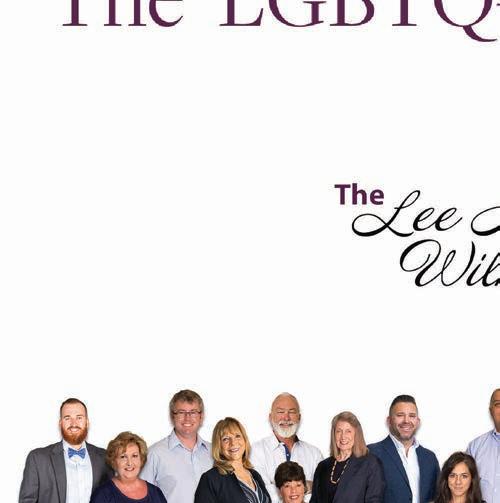




































By CHARLES GREEN
“Passionate Outlier” is a collection of 20 interviews and book reviews by freelance journalist Frank Pizzoli, covering gay authors, with one lesbian and one ally. Ranging from 2007 to 2019, Pizzoli talks with authors like Edmund White, Frank Rechy, Daniel Mendelsohn, and Salman Rushdie, and covers books about Gore Vidal and Christopher Isherwood. He captures great writers speaking about literature, politics, and gay life, while providing all necessary background on them.
Sadly, two of Pizzoli’s subjects, Edmund White and Felice Picano, have passed away since the book’s publication. Both writers were part of the “Violet Quill” a group of New York gay authors that met in the early ‘80s. Pizzoli interviews the then three surviving members, White, Picano, and Andrew Holleran. They speak at length about the history of the group and its myth. They only met eight times from 1980 to 1981, divvying up subject matter among them, and as they mention, writing is mainly a solitary activity. Yet the idea of the group endures as helping shape gay literature as a serious genre, not just “pornography” as it was previously considered. They also discuss White’s passionate argument with a critic over the very idea of gay literature; White believed in it, while the critic fiercely thought it was impossible. White also mentions that the harshest reviews of his work came from other gay men. Indeed, he responds to criticism from other authors included in this book, such as Daniel Mendelsohn and Christopher Bram. This back and forth throughout makes the book feel like an extended conversation between several writers.
Gore Vidal also serves as a connecting thread. Although he died before Pizzoli could interview him, his presence is greatly felt in many pieces. A review of Michael Mewshaw’s memoir of his friendship with Vidal, and an interview with Vidal’s official biographer Jay Parini show Vidal’s “thin skin,” drunken conversations, and litigiousness; he threatened to sue White over a play that imagined conversations between a Vidal-like figure and Oklahoma City bomber Timothy McVeigh. Christopher Bram, author of “Eminent Outlaws,” a history of gay writers, discusses Vidal’s intense rivalry with Truman Capote. Vidal’s works were deeply researched, but Capote was the more natural writer. Others talk about how his longtime partner Howard Austen was the only one who could get him to “shut up” when he was misbehaving.
Pizzoli allows the authors to reveal themselves in conversation. John Rechy, famous for his debut novel about male hustlers, “City of Night,” was Mexican-American but light-skinned enough to pass; a teacher changed his name from Jose to John. “City of Night” came from letters he wrote friends, which he sent to a magazine as the beginning of a novel, which forced him to write. He felt like writing the novel was betraying the secrets of the hustlers, prostitutes, and customers he knew so well.
Scholar, playwright, and novelist Martin Duberman discusses the political history of the gay rights movement and its connections with similar struggles, arguing that the Black Movement’s embrace of their difference helped gay people accept that they were not “inferior” to straight people. He wonders if marriage equality will lead to gays accepting government wrongdoing, because protesting would show “ingratitude.”
A surprising interview is Salman Rushdie, whose novel “The Golden House” has a character struggling with gender identity. He carefully researched the subject and spoke with friends to get it right. With thoughtful questions and reflective responses, “Passionate Outlier” shows the talent, diversity, and interconnectedness among gay authors.
‘Passionate
By Frank Pizzoli
c.2025, Rebel Satori Press | $18.95 | 246 pages
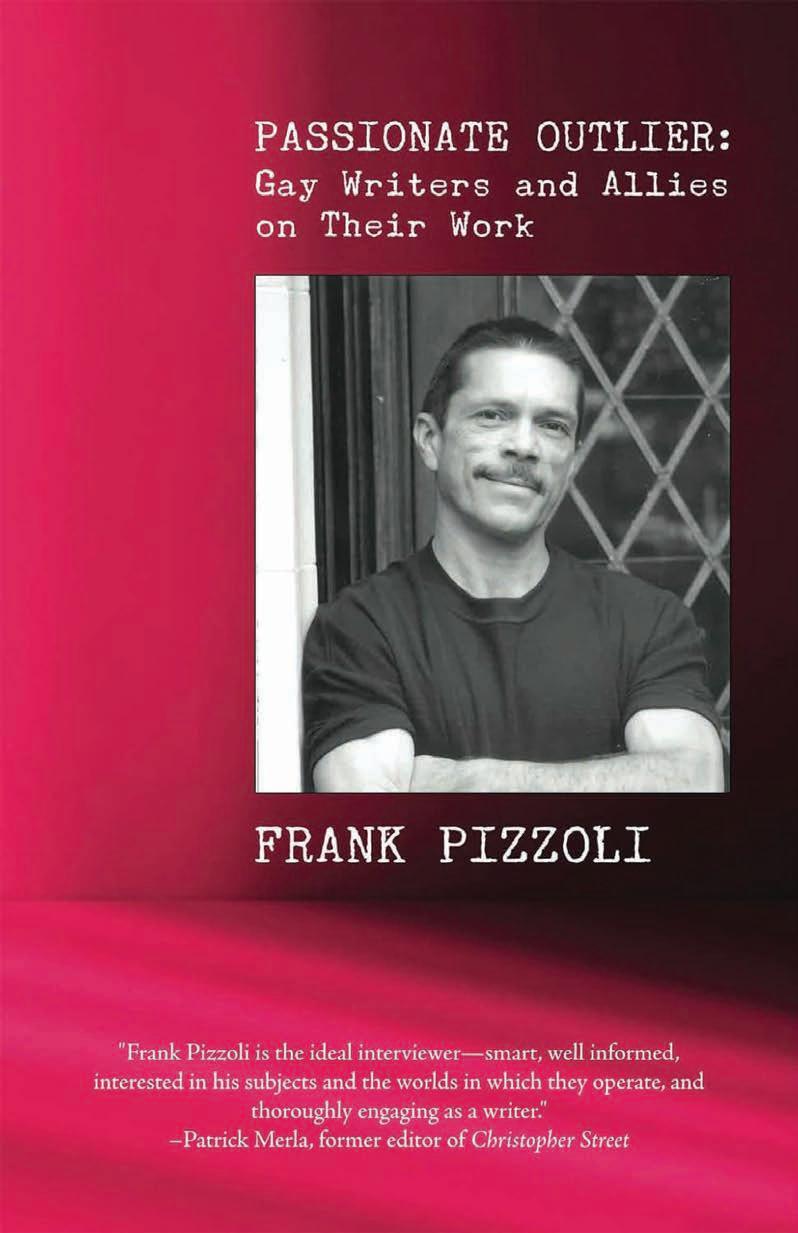

Should I tell him or keep it a secret?
By MICHAEL RADKOWSKY
Dear Michael,
I’ve been with my boyfriend for two years and I am keeping a secret from him: I hook up with other guys a lot.
This has been true for our entire relationship. I was having a lot of sex with a lot of guys before we met and I never really stopped, except for a few months right after we began dating when I was feeling all gooey toward David and didn’t want to have sex with anyone else.
But although I love him, I also love the variety and the excitement of someone new. So after a few months of just David, I hooked up with a hot guy on Grindr. After that I just kept going.
I didn’t tell David about it because I was worried I would hurt his feelings. Recently my best friend’s boyfriend discovered that my best friend was screwing around with other guys, and got so angry that he dumped him. This got me thinking about my own relationship.
I honestly don’t know how David would feel about me hooking up with other guys because we’ve never talked about it. I’m hoping he would understand that it doesn’t mean anything about my feelings for him and my commitment to him. It’s just fun.
But I’m concerned it would hurt his feelings. My friend’s boyfriend felt totally betrayed, even though my friend had no connection to any of the guys he was having sex with (outside of sex).
I’m starting to feel a little bit guilty keeping this from David. I want to tell him, to get it off my chest. I’m hoping he’d be fine with my continuing to have sex with other guys. But there’s some part of me that thinks he wouldn’t like it and then I think I should keep my mouth shut and keep hooking up. As the saying goes, what he doesn’t know won’t hurt him.
Thoughts on the best way to proceed?
Michael replies:
I think it is a great idea to be honest with your significant other. This includes telling him important things about yourself that he may not like.
David may think he is in an entirely different relationship from the one he is actually in. The two of you never discussed how you wanted to structure the relationship, and you subsequently

made the unilateral and secret decision to have sex with other men.
While David shares responsibility for never having brought this topic up, that doesn’t let you off the hook from asking for his input about the kind of relationship he might want, or from letting him know what kind of relationship he is actually in.
Being afraid that your partner won’t like something big doesn’t justify your not bringing that big thing to his attention. Your hookups may mean nothing to you (except sex), but they might mean a great deal to David. You can’t know unless you ask him.
I encourage you to consider what you want your standard to be as a partner in this relationship. My suggestion for a key ingredient of your standard: how you would like to be treated by your partner? Would you want David not to share something important or meaning-
ful with you, because he thought you might disapprove or say no?
Intimacy means knowing someone deeply and being known deeply. To have an intimate relationship, you have to let your partner know who you actually are. If you only tell him what you think he wants to hear or what you think he will approve of, you’re not in an intimate relationship.
Your relationship is now pushing you to figure out who you want to be and how you want to live your life. It is also pushing you to become a more solid person. In deciding how to handle your secret, you have the opportunity to:
• Decide if you want an honest and intimate relationship.
• Push yourself to share important issues with David that he might not like, if you do want an honest and intimate relationship.
• Develop the ability to keep your-
self calm enough to have tough discussions with David.
• Figure out what is most important to you, because you may not be able to do what you want in this relationship without there being consequences you don’t like.
• Tolerate disappointing David if you choose to do something that upsets him, and accept the consequences of your choice.
If you are determined to have an open relationship and David does not want to be in one, ending the relationship would be kinder than deceiving him.
(Michael Radkowsky, Psy.D. is a licensed psychologist who works with couples and individuals in D.C. He can be found online at michaelradkowsky. com. All identifying information has been changed for reasons of confidentiality. Have a question? Send it to michael@michaelradkowsky.com.)




BETSY TWIGG
Associate Broker | Licensed in Virginia 703.967.4391 (CELL ) betsy.twigg@corcoranmce.com
Corcoran McEnearney. REALTORS 3135 Langston Blvd, Arlington, VA 22201 betsytwigg.com Equal Housing Opportunity










LGBTQ celebration held in Delaware vacation destination
(Washington Blade photos by Daniel Truitt)




Kings and Queens from the DMV honored at ceremony
(Washington Blade photos by Michael Key)
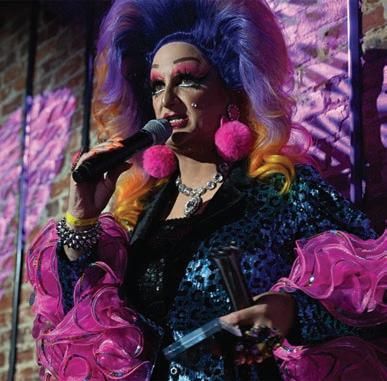

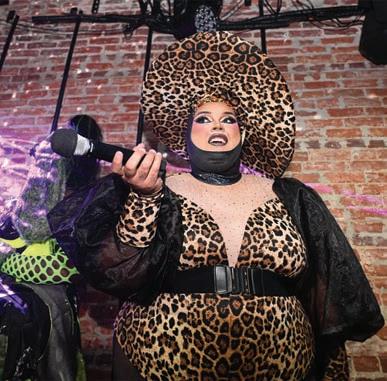







By JOSEPH HUDSON
Autumn is traditionally a busy time to search for homes. The period before the holidays start and after the heat of the summer, when vacations are over, kids are back in school, pools are closed, vacations have been taken, and life has a more predictable rhythm. (Whatever that means, these days.)
One could buy or sell, a house or condo, and be settled in their new home by the holidays. According to CNBC, prices are softening. When the interest rates remain higher, competition is not typically as steep. Homes may be sitting longer, so a buyer just might find the house they want and not compete for it. Sellers may still be able to find a buyer for their home if they really need to unload a property that no longer fits their needs or desire to have a fresh start.
In a market that is less competitive, it is important for a seller to have realistic expectations for how much they
can get for their property. Often agents speak to their clients about a range of pricing. Think about the cost of plane tickets from one city to another. There is no “magic number” that the universe can guarantee. This is the risk inherent in buying a home. Uncertainty is the only thing in life that is guaranteed. On a positive note, even if a seller doesn’t receive as high an offer for their property as they had hoped, there is no rule stating they must accept an offer that feels too low. The final sales price of a home depends on multiple factors:
• How many people made it that week to see the house?
• How busy was the open house?
• How many people asked for disclosures?
• Is the house priced on the lower end of the range to attract more attention?
• Did a seller feel overconfident and price their

home too high, meaning less people even clicked on the listing or went to the open house?
• There are realistic pricing options, and then there are ASPIRATIONAL pricing options.
• What websites is the house listed on? Is it a pocket listing, or fully viewable by everyone in the market?
A seller must remember that their favorite “friendsgivings” and dinner parties hosted in their home are their cherished memories, but they don’t add up to “$15,394 more of value” for the buyer. What does add value? New windows. A resurfaced roof. Newer electrical panels. Updated electrical outlets with GFCI safety features in the kitchen. Cleaned out light fixtures. Replaced light bulbs, some azaleas in the front yard, and maybe a few mums on the front porch in October. A home that looks welcoming, warm, clean, sparkles like new, and smells fresh.
Gratitude also goes a long way in a transaction. The very human propensity to think, “I could have gotten more if only…” can ruin the sense of satisfaction that comes with selling or enjoying a new property. The funny thing about gratitude, is that noticing the good things that happen each day trains the brain to see even more of them.
Lastly, buyers and sellers need to take care of themselves in the process. Big transitions can be stressful. Self-care such as scheduling a massage when the house hits the market, and the use of meditation apps to ease the thinking or ruminating can be immensely helpful. Relaxed brains are more effective brains. Most people want just as smooth of a transaction as does everyone else. Sometimes people need a minute (or an evening) to think. There are some transactions where the buyer and seller willingly exchanged more than just a house. They became friendly. They became resources for each other. They became willing to share their knowledge and thoughts. It became a collaborative process, and not an antagonistic one.
And for that, there is no monetary value.
JOSEPH HUDSON
is a referral agent with Metro Referrals. He can be reached at 703-587-0597 or joemike76@gmail.com.









FERNANDO’S CLEANING
Residential & Commercial Cleaning, Reasonable Rates, Free Estimates, Routine, 1-Time, Move-In/Move-Out 202-486-6183

LGBTQ
People. Individual/Couples counseling with a volunteer peer counselor. GMCC, serving our community since 1973. 202-580-8661
gaymenscounseling.org No fees. Donation requested.
HOUSING SHARE & PERSONAL ADS ARE
Place your’s today: washingtonblade.com/ classifieds HANDYMAN
BRITISH REMODELING
Local licensed company with over 25 years of experience. Specializing in bathrooms, kitchens & all interior/exterior repairs. Drywall, paint, electrical, wallpaper, roofing & siding. Trevor 703-303-8699

ADOPTION, DONOR, SURROGACY
legal services. Catelyn represents LGBTQ clients in DC, MD & VA interested in adoption or ART matters.
MODERN FAMILY FORMATION Law Offices, Slattery Law, LLC. 240-245-7765
Catelyn@ModernFamilyFormation.com
LIMOUSINES
KASPER’S LIVERY SERVICE

Gay & Veteran Owner/Operator. Enjoy Lincoln’s “Sanctuary of the Senses” in this
Nautilus!Proper DC License & Livery Insured. Since 1987. 202-554-2471 www.KasperLivery.com
4-bedroom, 2-full bathroom, house offers space, privacy, & convenience for families or professionals. Fully equipped kitchen with modern appliances, private backyard. Driveway & garage parking included. Washer & dryer in-unit. Quiet, family-friendly neighborhood. Close 2 schools, parks & public transport. Access 2 major highway. Utilities not included. Rent: $3700/month. 202-813-7975 bit.ly/4lN7AM8


MEN FOR MEN TALL, FAIRLY GOOD LOOKING iso tall, muscular, hung, Brazilian male. Ready for daddy to work into submission. If you’re ready to perform and want pleasure, then here is your guy. Sincere replies only, 24 hrs a day. Call or text: 240-457-1292
MAGIC TOUCH Swedish, Massage or Deep Tissue. Appts. Low Rates, 24/7, In-Calls. 202-486-6183

This lovely 42-foot Chris-Craft yacht is in good condition, & is located at the Wharf Marina. It comes with live-aboard rights where you can enjoy a beautiful area of DC—on the water!—at a fraction of land prices. $1800 monthly fees. Tour the boat & meet DC’s friendliest, safest & happiest community. ALL communities are cherished here. View the Washington Monument & meet our neighborhood! $150,000.00. http://bit.ly/3HFgAE3
—an exceptionally maintained 3-bedroom, 2-bath raised rambler offering thoughtful design & natural beauty. Skylights & vaulted ceilings fill the dining area with light & create a bright, open layout ideal for relaxing or entertaining. The spacious primary suite, accessed by a charming spiral staircase, overlooks the dining room & is flooded with sunlight. Hardwood floors run throughout, & the modern kitchen features premium stainless steel appliances. Outside, the private backyard retreat is surrounded by mature trees, lush landscaping, & a tranquil pond. Certified by the National Wildlife Federation as a Backyard Wildlife Habitat, it offers a haven for local wildlife. A large matching shed provides ample storage or workspace. Minutes to Columbia Pike, major commuter routes, & DCA, with the W&OD Trail & Shirlington’s shops & dining nearby. This is a home where comfort meets convenience, in a setting that feels worlds away.
Mike Webb The Mike Webb Team RE/MAX ALLEGIANCE 5100 Leesburg Pike #200, Alexandria, VA 22302 703-979-3016
NorthernVirginiaHouses.com






